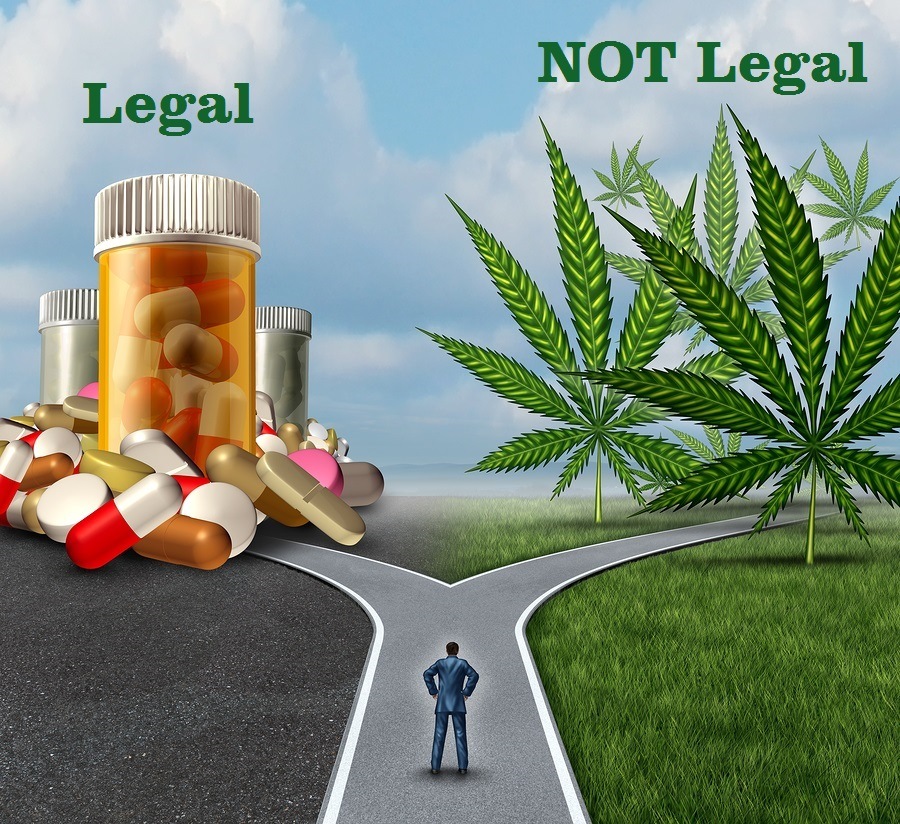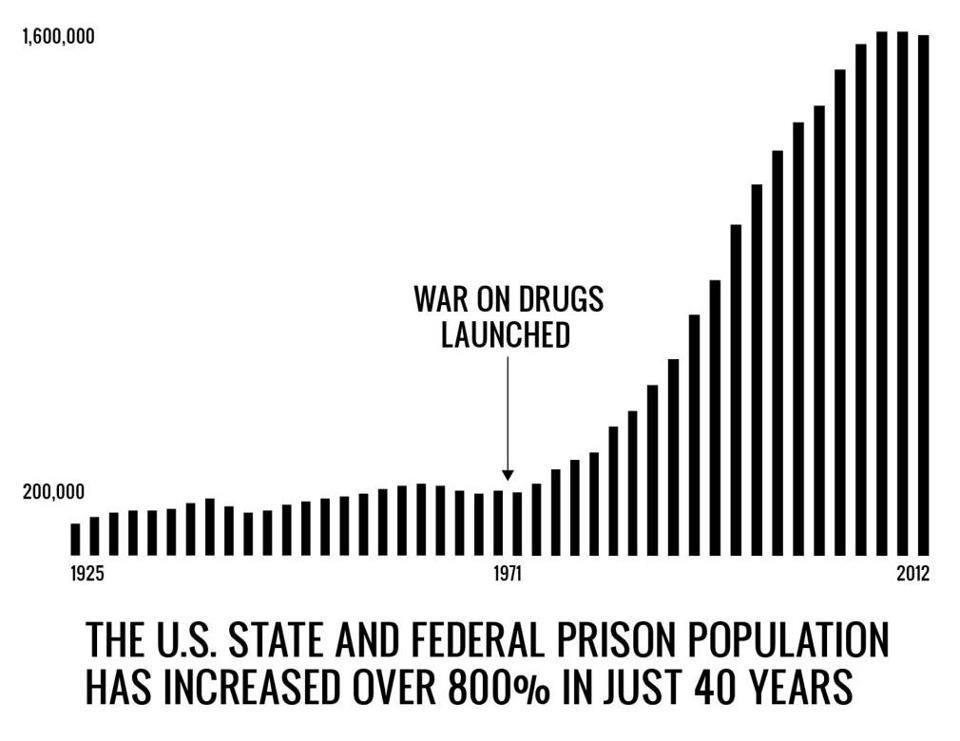
by Paul Fassa
Health Impact News
Health Impact News
A 2017 study on medical cannabis by NewFrontier Data looked at the economic impact on the pharmaceutical industry if medical cannabis were to become legal nationally:
In our latest study, From Prescription to Recommendation: How Cannabis Could Disrupt the Pharmaceutical Industry, our data analysts have found that if medical cannabis were legalized nationally, pharmaceutical expenditures on the top nine conditions commonly treated by medical cannabis could fall an estimated $18.5 billion between 2016 and 2019.The study looks at the impact to pharmaceutical sales on the nine ailments most commonly treated with cannabis which are:
- Chronic Pain
- Post-Traumatic Stress Disorder (PTSD)
- Sleep Disorders
- Anxiety
- Nerve Pain
- Chemotherapy Induced Nausea and Vomiting (CINV)
- Tourette Syndrome
- Glaucoma
- Seizures/Epilepsy
Could the powerful pharmaceutical lobby be behind the current administration’s efforts to try and crack down on legal cannabis in states where it has become legal? How else can the disinformation currently being published by the current attorney general be interpreted?
Attorney General Jeff Sessions’ Attack on Cannabis: What is the REAL Gateway Drug? Opioids or Cannabis?
Ever since former Alabama Senator Jeff Sessions was put into office as the U.S. Attorney General (AG) to preside over the U.S. Department of Justice, which houses the Drug Enforcement Administration (DEA), advocates of medical cannabis have been at least a little nervous.
Apparently many U.S. Congressional members and governors of medical marijuana states are preparing to protect their state programs that are proving medical benefits as well as providing much needed added revenue from taxes on cannabis products. We may be involved in a righteous political fight in the near future.
Sessions was quoted once as saying “good people don’t smoke marijuana.” His myopic drug policy focus is on stemming the tide of state by state legalization of cannabis for any purpose. And his focus on smoking pot reveals a willful ignorance of other cannabis medical applications that are either edibles, tinctures, or oils for medical purposes.
Sessions’ obsession with marijuana was highlighted in a talk he delivered at a recent Heritage Foundation meeting. One of the issues he addressed was the opioid crisis. He declared the current opioid pain-killer addiction and high death rate was caused by “marijuana and other drugs.”
A short video of his statement to the Heritage Foundation appears in this article.
His focus on cannabis as an evil weed won’t allow him to see the actual statistics or studies of cannabis that show lower opioid use and less deaths from overdose in medical marijuana-friendly states. Nor will he listen to the medical practitioners who support this evidence and vocally support cannabis as the gateway drug out of opioid addiction.(Source)
In Sessions’ Heritage Foundation presentation, he suggested that doctors prescribe opioid prescriptions less and their patients take Bufferin and go to bed instead.

Sessions is not at all disturbed, at least publicly, with how Congress created and passed a bill that eliminated legal DEA activities that had been successful at curbing illicit and lucrative opioid distribution networks.
A 60 Minutes news report exposed how Congress clamped down on this valid war on drugs effort by the DEA that involved pharmaceutical manufacturers and distributors alike while adding significant Justice Department revenue from fines levied against them. (Source)
Jeff Sessions seems to be set to oblige the private prison industry lobby’s efforts, from which financial contributions are expected to create more business by imprisoning cannabis users. What is this current agenda against cannabis?
Sessions’ Actions Have Promoted Concerns in the Cannabis Community
Since mid-2017 to February 2018, our current AG has caused nervous concerns to inflate into high anxiety. First, in May, Sessions sent memos to key Congressional members urging them to not include the Rohrabacher-Farr, now the Rohrabacher–Blumenauer amendment, in the next Omnibus Spending Bill or Budget.
This amendment was first included in 2014 to not allow the DEA or U.S. Justice Department to use federal funds for interfering with states that permit cannabis for medical or even recreational use as long as users, cannabis dispensaries, and cannabis growers were in compliance with state guidelines.
The situation that would allow Congress to comply with Session’s strong wishes has not manifest yet, mostly due to the fact that the once Rohrabacher-Blumenauer amendment has been extended until March 23, 2018, when Congress reconvenes to complete the details of the federal Omnibus Appropriations or Spending Bill.
U.S. Representatives Dana Rohrabacher (R-CA) and Earl Blumenauer (D-OR) have pledged to work diligently on moving the amendment to the House of Representatives Floor for a full vote by March 23. Recent attempts at obtaining the vote on the House Floor have been denied by Congressional Committees. (Source)
The original Rohrabacher–Blumenauer amendment provides the same essential prohibition of federal funds for the DEA’s intrusion into state-sanctioned cannabis programs as mandated by the earlier Rohrabacher-Farr amendment since 2014.
“The federal government can’t investigate everything and shouldn’t, and I don’t want them pursuing medical marijuana patients who are following state law,”
said Sen. Patrick Leahy (D-Vt.), who offered a Senate version of the Rohrabacher-Blumenauer (RB) amendment.
This Senate version has not run into the opposition that exists in the House and may provide a tipping point that mellows out the anti-marijuana attitude of key House Representatives who have been stopping the RB amendment from appearing on the House Floor. (Source)
Sessions Eliminates the Previous Policy of Laissez-Faire from the Previous Justice Department
Early in January of 2018, Sessions rescinded the Cole memorandum of 2013. The Cole memorandum established a relaxed relationship between federal law and state laws regarding the use of cannabis. James Cole was the Deputy AG during the Obama Administration and his memo set the tone of the Justice Department’s attitude to states which had legalized cannabis use.
The Cole memo advocated leaving state-sanctioned cannabis industries alone as long as they adhered to their own intra-state guidelines and the following mandates:
- Prevent distribution of cannabis to minors
- Prevent cannabis revenue from funding criminal enterprises, gangs or cartels
- Prevent cannabis from moving out of states where it is legal
- Prevent use of state-legal cannabis sales as a cover for illegal activity
- Prevent violence and use of firearms in growing or distributing cannabis
- Prevent drugged driving or exacerbation of other adverse public health consequences from cannabis
- Prevent growing cannabis on public lands
- Prevent cannabis possession or use on federal property (Source)
Recently, media reports have Israeli Prime Minister Benjamin Netanyahu putting the brakes on Israel’s growing medical cannabis industry’s desire to export medical cannabis products to the USA, reportedly because President Donald Trump didn’t like the idea and Netanyahu didn’t want to upset him. (Source)
Political Push-Back to Sessions’ Anti-Cannabis Obsession Have Begun
States that are experiencing a boon in tax revenue do want to hang on to their newly found cash-cows, and there are more coming to recognize the tax revenue potential as well as some actually realizing the medical benefits as real. Governors of existing medical marijuana states are ready to guard this situation, and members of Congress from both parties face a constituent that overwhelmingly support the medical use of cannabis nation-wide, so there seems to be bi-partisan support to oppose Sessions’ efforts to restrict medical cannabis.
In addition to keeping the Justice Department funding restrictions intact, different legislative efforts from U.S. representatives and senators from those states intend to totally de-criminalize cannabis on a national level, not just change its place in the DEA’s pecking order of controlled substance from Schedule 1 to a slightly more tolerant level that at least allows some medical use.
The Marijuana Justice Act, introduced by Sen. Cory Booker (D-NJ), would end the federal prohibition on marijuana once and for all, by removing the drug from the DEA’s list of controlled substances entirely. It was introduced as Senate bill number S. 1689, but thus far is without co-sponsors. Earlier, Senator Bernie Sanders had attempted to introduce a similar bill with similar results.
However, a similar version of S. 1689, H.R. 1227 – Ending Federal Marijuana Prohibition Act of 2017, was introduced into the House of Representatives by Thomas Garrett (R-Vir) and has 15 House co-sponsors. They are:
- Gabbard, Tulsi [D-HI2] (joined Feb 27, 2017)
- Taylor, Scott [R-VA2] (joined Feb 27, 2017)
- Polis, Jared [D-CO2] (joined Mar 1, 2017)
- Amash, Justin [R-MI3] (joined Mar 7, 2017)
- Blumenauer, Earl, D-OR
- Young, Don, R-AK
- Rohrabacher, Dana R-CA
- Cohen, Steve, D-TN
- Grijalva, Raúl, D-AZ
- Perlmutter, Ed, D-CO
- Raskin, Jamie, D-MD
- O’Rourke, Beto, D-TX
- Hunter, Duncan, R-CA
- Jayapal, Pramila, D-WA
- Khanna, D-CA (Source)
Other Nations are Succeeding with Permissive Medical Cannabis Regulations

Israel, Canada, and Mexico, have established national medical marijuana programs.
Uraguay and Portugal decriminalized all drugs in 2013 and 2001 respectively. Amsterdam is notoriously known for its relaxed enforcement of marijuana laws.
De-criminalizing simply protects users from being jailed as long as the amounts they possess are strictly at the levels of personal use only.
There can be drugs that are considered illegal though. When it comes to marijuana’s recreational use, laws similar to alcohol consumption make sense, not allowing it among minors and prohibiting the operation of a motor vehicle while intoxicated.
If there is such a thing as a gateway drug, alcohol would be just that. It is also much more unhealthy than cannabis. It too was prohibited at one time. But unlike marijuana, it really doesn’t have much medicinal value. And it leads to more violent activity and reckless driving accidents than recreational marijuana use.
When it comes to cannabis, both young and old benefit greatly with cannabis oils and tinctures or edibles for serious diseases, even among those who don’t have serious life-threatening diseases who smoke or vape the bud. Many are doing well without those pharmaceuticals that create serious side effects and cause over 100,000 deaths per year.(Source)
A 2018 study concluded,
“After monitoring patients 65 and older for six months, we found medical cannabis treatment significantly relieves pain and improves quality of life for seniors with minimal side effects reported.” (Source)
The improved quality of life is due in good measure to a combination of cannabis use and the reduction of pharmaceutical drugs that results. Senior citizens are the most heavily pharmaceutically prescribed sector of our population.
We have more and more reports of young children using medical cannabis products, including those with little or no THC – the component that makes one “high”, and recovering from serious disease rapidly or controlling epilepsy, where pharmaceutical drugs usually did little and sometimes worsened their conditions. There are several Health Impact News articles on this.
Hopefully, a handful of ignorant politicians and government bureaucrats, driven by their prejudices and fears, possibly influenced by the pharmaceutical industry, and the private prison industry’s demands for more prisoners for profit, will not prevail.
https://healthimpactnews.com/2018/big-pharma-stands-to-lose-18-5-billion-if-marijuana-is-legalized-nationally-is-this-why-the-current-administration-is-attempting-to-halt-the-progress-of-medical-cannabis/
No comments:
Post a Comment